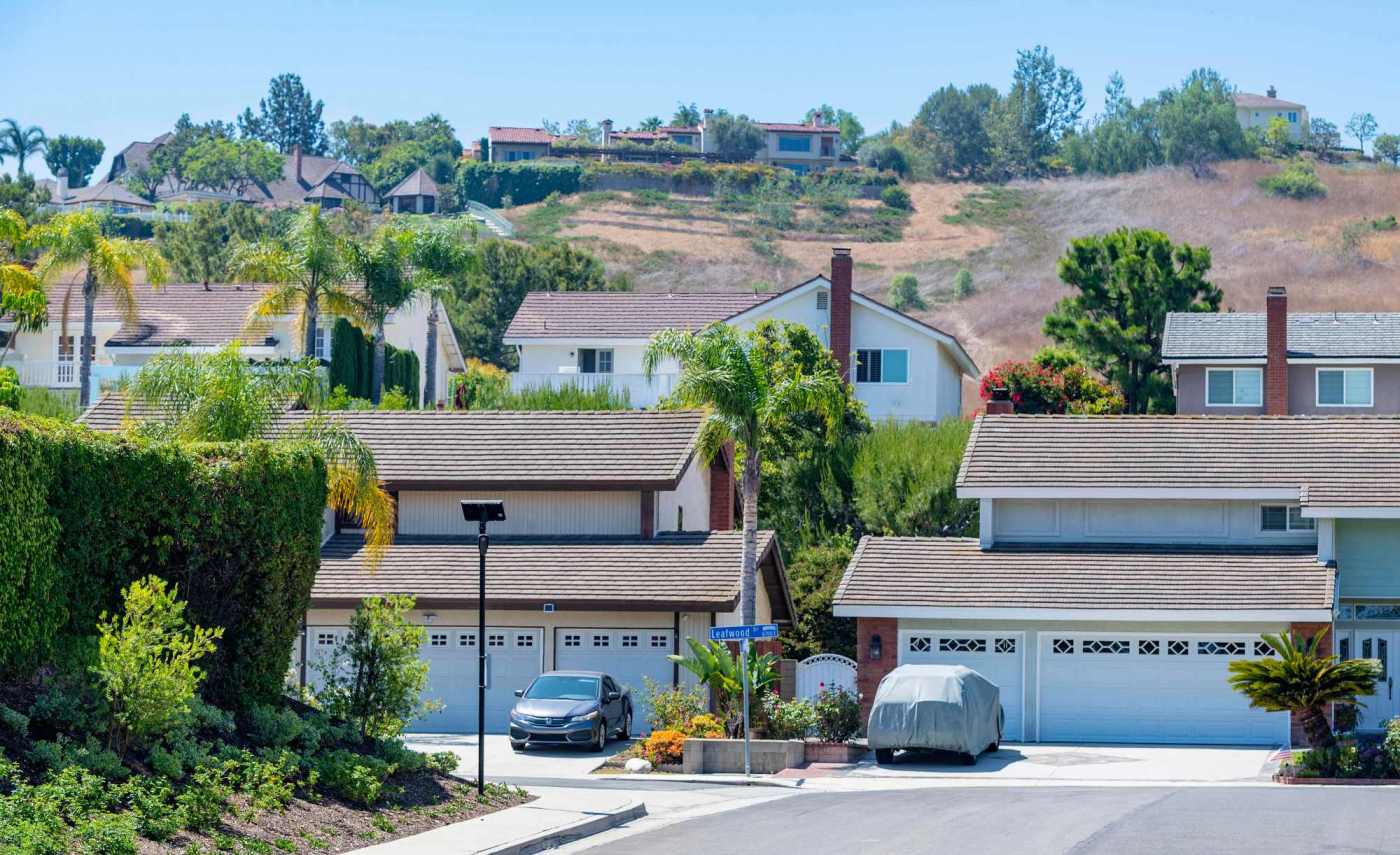A system of pumps that protects an Anaheim Hills neighborhood from landslides should no longer have funding challenges after homeowners on Monday overwhelmingly approved taxing themselves — in some cases by thousands of dollars annually — to keep the pumps running.
The 1993 Santiago landslide damaged a dozen homes in this area of Anaheim Hills, forcing many families to evacuate. Following the landslide, dewatering wells were installed that now protect more than 300 homes on the southern end of the hills community. But they cost $340,000 annually to keep running.
Funding for the pumps was set to run out early next year — potentially during the rainy season. And homeowners in May had narrowly voted for a third time against continuing to fund the system.
But on Monday, enough homeowners in the Santiago Geologic Hazard Abatement District, which manages the pumps, agreed to a permanent property tax assessment to keep the pumps running into the future.
District Chair and homeowner James Guziak on Tuesday said the vote ensures that the community will be safe moving forward.
“It’s like paying for insurance,” he said. “This is our insurance premium to keep the landslide from occurring. There were a lot of very happy people last night, and certainly I was one of them.”
Seventy-three percent of the weighted votes went toward approving the assessment this time. The votes are weighted proportionally to how much each homeowner would have to pay based on their house’s risk of being affected by a landslide.
“It was very gratifying because there was more community input from people in getting it passed,” Guziak said. “They realized the seriousness of the situation and started talking with their neighbors. And that made a big difference.”
Homeowners will pay anywhere between $395 to $2,500 more on their property taxes each year, depending on their risk. The average property will pay just under $1,000.
The district was created in 1999 to oversee the funding and operations of dewatering wells installed to protect the homes from future land slippage. The pumps lower groundwater levels, reducing the potential for landslides to occur.
The system of 37 wells and drain lines removes more than 10 million gallons of water per year, according to the city. Groundwater builds up, especially during rainy seasons. That is the situation that preceded the 1993 landslide.
The district includes homes on the streets of Avenida de Santiago; Leafwood, Burlwood and Rimwood drives; Georgetown Circle and several other nearby streets in the Anaheim Hills area.
As part of a legal settlement in 1999, the city seeded the district with $3.5 million.
That pot of money had run dry by 2022. After a few failed assessment votes, homeowners in 2023 voted to temporarily assess themselves for two years in hopes that a Federal Emergency Management Agency grant could fund construction for a long-term structural repair.
But the California Office of Emergency Services, which reviewed the application, waitlisted it, dashing hopes of grant funding.
After homeowners in May rejected a similar assessment attempt, the district went back one more time to see if it could muster enough support and succeeded.
Most people living in the area now weren’t around when the landslide happened, Guziak said. One couple that had to move out for four months after their home was red-tagged following the landslide stepped up their efforts to talk to neighbors about the risk, he said.
While the district has gone through funding struggles in recent years after its initial seed money ran out, Guziak said the assessment approved Monday is permanent.
The city of Anaheim participated in the election and will contribute $62,000 annually. That’s almost 50% more than what the city first committed in the May vote when residents expressed that the city wasn’t financially contributing enough, according to Public Works Director Rudy Emami.
Emami said if the pumps stop, there would be “a great likelihood that the landslide would reactivate.” The point of the city choosing to voluntarily contribute was “to do the right thing and help residents from losing their homes.”
Councilmember Natalie Rubalcava at a July 15 meeting voted against the city paying more into the system, noting it was a wealthier part of the city.
“It’s hard for me to kind of wrap my head around the fact that we are going to increase our investment when they are not,” Rubalcava said.
Monday’s vote would have passed even if the city had not participated in the vote, Guziak said.
A total of 169 homeowners voted. One resident filed a written protest arguing that the assessment violates state law. They have 60 days to sue over the assessment if they wish.
